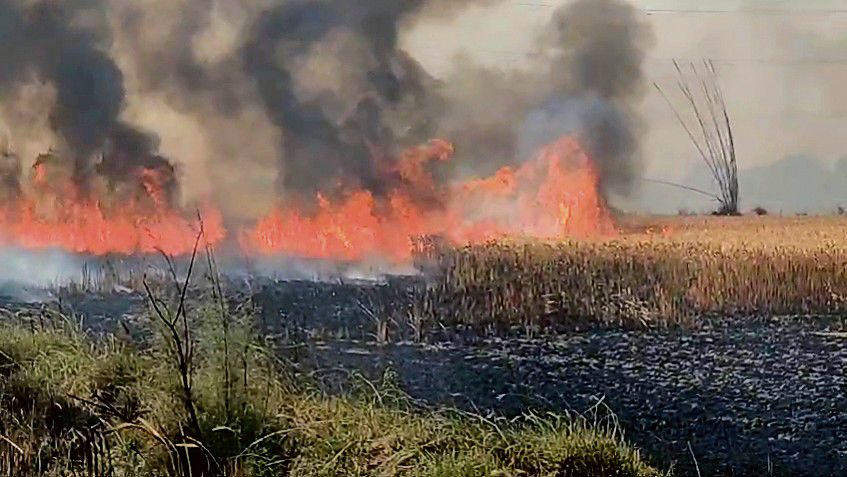NGT seeks Punjab’s response on steps to check farm fires
Neeraj Mohan
New Delhi, July 12
The National Green Tribunal (NGT) has sought a response from the Punjab Government following an application by a Phagwara-based NGO, which claims that current efforts to address stubble burning are inadequate, especially for small and marginal farmers.
The NGO has urged the NGT to direct the state government to provide machinery to small farmers and to scrutinise a Punjab Agricultural University (PAU) study allegedly promoting crop-waste burning for disease control.
Follow Haryana model: NGO
- The NGO argued that Punjab should follow Haryana’s model under which the state provides Rs 1,000 per acre to farmers who do not burn crop waste. Additionally, they requested the NGT to mandate a study on the impact of stubble burning on human health and the environment in affected areas so that they can raise awareness among farmers about its adverse effects.
Senior advocate HS Phoolka, representing the NGO, stated that their application highlighted three critical issues contributing to stubble burning in Punjab. The application was submitted during an ongoing NGT hearing on the matter.
Phoolka emphasised that small and marginal farmers cannot afford subsidised heavy machinery intended to manage stubble, nor can they take these on rent.
The NGO argued that Punjab should follow Haryana’s example, where the state provides Rs 1,000 per acre to farmers who avoid burning crop waste. Additionally, they requested the NGT to mandate a study on the impact of stubble burning on human health and the environment in affected areas, to raise awareness among farmers about its adverse effects.
The application also included documentation from PAU, which allegedly recommended burning of crop waste to control diseases such as Sheath Rot, Stem Rot, and Sheath Blight in paddy. Phoolka asserted that the government should promote alternative practices, such as using crop residue as manure.
Responding to the application, the NGT’s Principal Bench, led by Chairperson Justice Prakash Shrivastava, asked the Punjab Government to present its action plan to curb stubble burning. The government’s legal representatives requested time to prepare their response.
PAU clarifies stance on fires
Talking to The Tribune, PAU Vice-Chancellor Satbir Singh Gosal clarified that the university did not endorse stubble burning. He explained that historical recommendations might have been misinterpreted, as PAU’s guidelines after 2012 only suggested destroying diseased plants, not burning the entire crop residue. He stressed that PAU advocated sustainable, environmentally-friendly farming practices.
“Stubble burning may have been advocated as one among several practices decades ago, it was neither the exclusive nor the primary recommendation. Over the time, farm practices have evolved significantly, with PAU emphasising sustainable and environmentally-friendly methodologies,” he said.
Meanwhile, a statement by the PAU mentioned that small or marginal farmers, facing financial constraints in accessing fungicides and other treatments, often resorted to managing affected crop residues to combat severe disease outbreaks.









